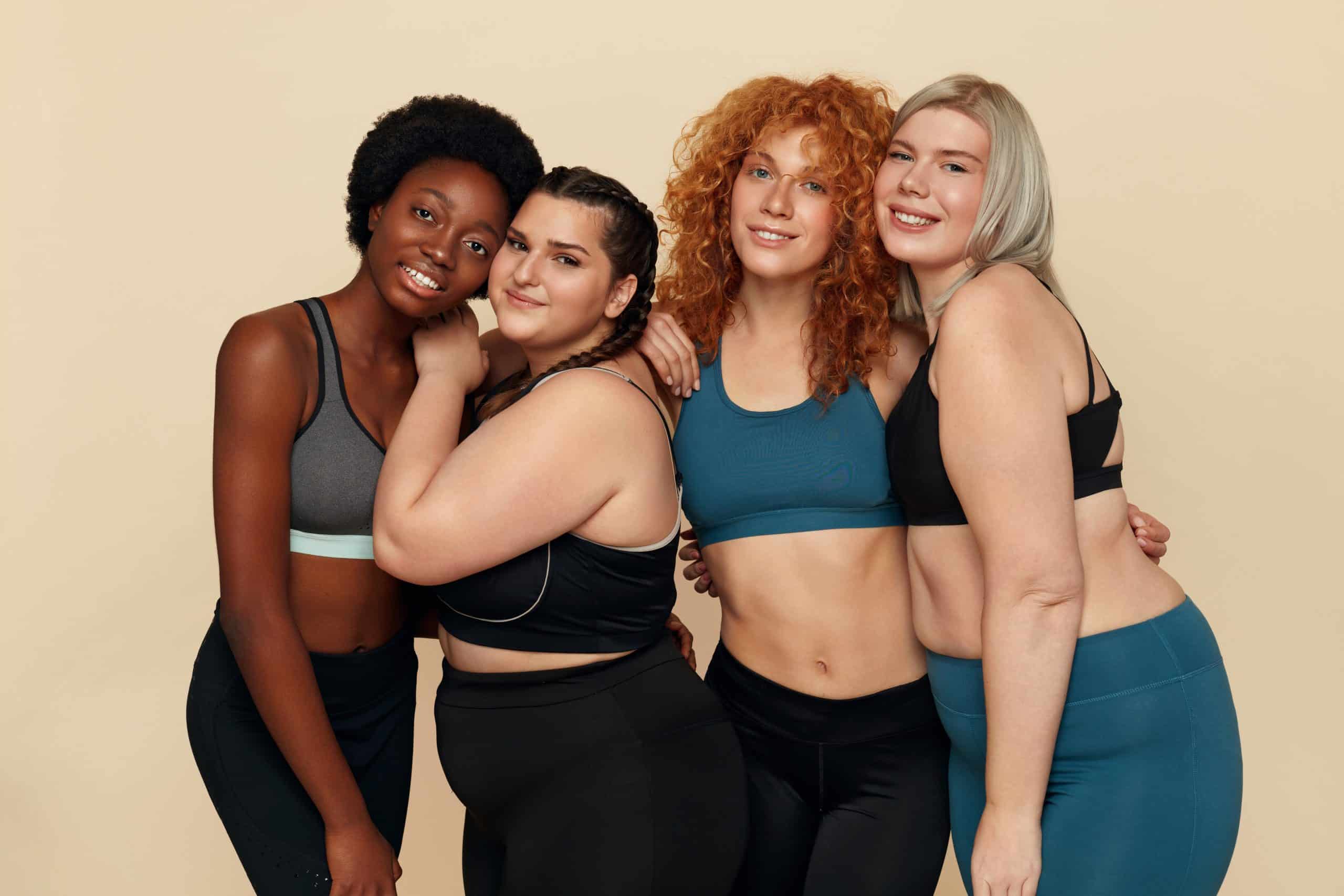The human body is like a complex machine, and one of its well-researched and understood functions is metabolism. In very simple terms, metabolism is the set of chemical reactions that occur in the cells of living organisms to convert food into energy. There are different types of metabolism and they’re based on how quickly or slowly these chemical reactions take place. According to some researchers, each person has a unique metabolic type.
This means that the rate at which your body converts food into energy can be different from someone else’s. Knowing your metabolic type can be helpful with losing weight and keeping it off because you can tailor your diet and exercise routines to suit your individual needs (3). The goal is to use your metabolic type to create a unique diet and exercise routine that maximizes fat burning and minimizes hunger. That way, you’ll be more likely to stick with your plan and achieve long-term success. Here’s everything you need to know about metabolic types and how to find out yours so that you can lose weight in a way that works best for your body.
What Are The Types Of Metabolism?
Metabolism is a pretty complex process—it starts with the food you eat, and the digestive system breaks down those nutrients into smaller molecules that can be used for fuel by the cells.
From there, the cells use a process called oxidative phosphorylation to create ATP, or energy. The type of foods you eat, how much you eat, and your level of physical activity all affect your metabolism. Above all else, though, your genes play the biggest role in determining your metabolic type.
There are three main types of metabolism: ectomorph, mesomorph, and endomorph. Some people fall into one category, while others may be a mix of two or even all three. Here’s a closer look at each one.
Ectomorphs
We all have that one friend who can eat whatever they want and never gain a pound. They might be an ectomorph. Ectomorphs have a fast metabolism, meaning their bodies burn calories quickly. They tend to be slim and have difficulty gaining weight (6). Even with consistent overeating and a sedentary lifestyle they may still have trouble piliing on the pounds.
A typical ectomorph has the following characteristics:
- Skinny or slender build
- Long and thin limbs
- Small shoulders
- Little to no muscle mass
- Fast metabolism
- Trouble gaining weight
Dietary advice for ectomorphs to maintain a healthy weight and get stronger:
- High-protein meals – protein should make up 20-30% of your daily caloric intake, as it is the nutrient responsible for preserving and building muscle mass (5).
- Healthy fats – healthy fats are essential for ectomorphs, as they help with hormone production and provide energy. Aim to get 15-20% of your daily caloric intake from healthy fats (7).
- High carb days – to help with weight gain, ectomorphs should have 1-2 high carb days per week. On these days, they should consume 50-60% of their calories from carbs (4).
- Caloric surplus – in order for ectomorphs to gain weight, they need to consume more calories than they burn. This can be done by eating more often throughout the day and/or increasing the portion sizes of meals.
Exercise advice for ectomorphs to maintain a healthy weight and get stronger:
People with this metabolic type should focus on strength-training exercises that build muscle mass. They may also want to include some cardio exercises in their routine, but these should be shorter in duration and not too intense, as ectomorphs should preserve muscle mass.
Read More: Metabolic Weight Loss Program: How It Works
Mesomorphs
Mesomorphs have a naturally athletic build and can put on muscle relatively easily. Unfortunately, they can also gain fat more easily than other body types. Mesomorphs have a medium metabolism, meaning their bodies burn calories at a moderate rate (6).
A typical mesomorph has the following characteristics:
- Muscular build
- Medium frame
- Strong legs
- Can gain and lose weight easily
- Moderate metabolism
- Respond well to exercise
- Tend to carry fat in the lower body
Dietary advice for mesomorphs to maintain a healthy weight and get stronger:
- Protein-rich meals – protein helps maintain and build muscle mass, so mesomorphs should aim to get 25-30% of their daily caloric intake from protein (5).
- Healthy fats – healthy fats are essential for mesomorphs, as they help with hormone production and provide energy (7). However, since mesomorphs tend to carry more fat than other body types, they should aim for healthy fats to make up 20 – 30% of their daily caloric intake.
- Low-carb meals – since mesomorphs tend to gain weight easily, they should limit their carbohydrate intake to 40% of their daily caloric intake. Whole, unprocessed carbs are best, as they provide sustained energy levels.
- Carb timing – to help with weight management, mesomorphs should eat most of their carbs around exercise times, as this will help them utilize them for energy.
- Calorie-controlled meals – since mesomorphs tend to gain weight easily, they should be mindful of their portion sizes and the number of calories they’re consuming.
Conversely, their higher muscle mass means they require more energy than other body types. To strike a balance, mesomorphs should aim to eat calorie-controlled meals that are rich in nutrients.
Exercise advice for mesomorphs to maintain a healthy weight and get stronger:
- Strength-training: Mesomorphs have a natural advantage when it comes to strength-training, as they can build muscle relatively easily. They should focus on exercises that target all major muscle groups.
- Cardio: Mesomorphs who are looking to lean out may want to include some cardio exercises in their routine. Cardio can help burn calories and promote weight loss (1).
BetterMe app is a foolproof way to go from zero to a weight loss hero in a safe and sustainable way! What are you waiting for? Start transforming your body now!
Endomorphs
Endomorphs have a higher fat to muscle ratio and tend to appear rounder or softer than other body types (6). They also have a slower metabolism, which means they burn calories at a slower rate.
A typical endomorph has the following characteristics:
- Round or soft body shape
- Medium to large joints and bones
- Fuller figure
- Heavy build
- Gains weight (muscle and fat) easily
- Finds it hard to lose weight
- Fatigues easily
- Slow metabolism
Dietary advice for endomorphs to maintain a healthy weight and get stronger:
- Protein-rich meals – 35% of daily caloric intake should come from protein to help maintain and build muscle mass (5).
- Healthy fats – 30-40% of daily caloric intake should come from healthy fats to help with hormone production and provide energy. The filling properties of healthy fats can also help endomorphs feel satisfied after meals (7).
- Low-carb meals – since endomorphs are very sensitive to carbs in terms of weight gain, they should limit their intake to no more than 25% of their daily caloric intake.
- Carb timing – to help with weight management, endomorphs should eat most of their carbs around exercise times, as this will help them utilize them for energy. Eating most of the carbs in the morning may also help stabilize blood sugar levels throughout the day.
- Calorie-controlled meals – since endomorphs tend to gain weight easily, they should be mindful of their portion sizes and the number of calories they’re consuming. Furthermore, their slower metabolism means they require fewer calories than other body types. To strike a balance, endomorphs should aim to eat calorie-controlled meals that are rich in nutrients.
Exercise advice for endomorphs to maintain a healthy weight and get stronger:
- Strength-training: Endomorphs should focus on exercises that target all major muscle groups. They may want to consider doing more reps with lighter weights, as this can help tone their muscles without adding bulk.
- Cardio: Cardio exercises are important for endomorphs, as they can help burn calories and promote weight loss. Low-impact cardio exercises may be best, as they won’t fatigue endomorphs as quickly.
- Interval training: Interval training, or periods of high-intensity exercise followed by periods of rest, can be beneficial for endomorphs. This type of exercise can help burn calories and promote weight loss (2).
Read More: How To Boost Metabolism After 40: Tips & Tricks To Rev Your Metabolic Rate
Mixed Body Type
Some people may not fit neatly into any one category and may have characteristics of both ectomorphs and mesomorphs (or endomorphs) (6). This is known as a mixed body type.
There are no set guidelines for how to eat or exercise if you have a mixed body type. Instead, you may want to focus on finding an approach that works best for you and your individual goals.
If you have a mixed body type, you may want to:
- Eat a balanced diet that includes plenty of protein, healthy fats, and carbs
- Focus on exercises that target all major muscle groups
- Do a mix of cardio and strength-training exercises
- Find an exercise routine that you enjoy and can stick to in the long-term.
- Consider whether you need a calorie deficit or surplus, depending on your goals.
- Experiment with different types of exercise and see what works best for you.
Intense sweat sessions, working weight loss tips, lip-smacking recipes come in one package with the BetterMe app. And all of it is at your fingertips, start transforming your life now!
The Bottom Line
Knowing your metabolic type can be helpful when it comes to choosing the right diet and exercise routine. However, it’s important to keep in mind the basic rules of calorie balance and energy expenditure.
If you want to lose weight, you need to create a calorie deficit by eating fewer calories than you burn. If you want to gain weight, you need to create a calorie surplus. And if you want to maintain your weight, you need to eat the same number of calories that you burn.
No matter what your metabolic type may be, the key to success is finding an approach to diet and exercise that you can stick to in the long-term. And remember, everyone is different. What works for one person may not work for another.
Get your personalized
meal plan!
DISCLAIMER:
This article is intended for general informational purposes only and does not serve to address individual circumstances. It is not a substitute for professional advice or help and should not be relied on for making any kind of decision-making. Any action taken as a direct or indirect result of the information in this article is entirely at your own risk and is your sole responsibility.
BetterMe, its content staff, and its medical advisors accept no responsibility for inaccuracies, errors, misstatements, inconsistencies, or omissions and specifically disclaim any liability, loss or risk, personal, professional or otherwise, which may be incurred as a consequence, directly or indirectly, of the use and/or application of any content.
You should always seek the advice of your physician or other qualified health provider with any questions you may have regarding a medical condition or your specific situation. Never disregard professional medical advice or delay seeking it because of BetterMe content. If you suspect or think you may have a medical emergency, call your doctor.
SOURCES:
- Aerobic exercise alone results in clinically significant weight loss for men and women: Midwest Exercise Trial-2 (2013, nih.gov)
- Is interval training the magic bullet for fat loss? A systematic review and meta-analysis comparing moderate-intensity continuous training with high-intensity interval training (HIIT) (2019, nih.gov)
- Metabotyping and its role in nutrition research (2019, nih.gov)
- Physiology, Carbohydrates (2022, nih.gov)
- Protein in diet (2021, nih.gov)
- THE 3 SOMATOTYPES (n.d., uh.edu)
- What Do Fats Do in the Body? (2011, nih.gov)











